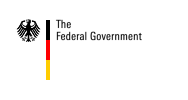Merkel underscored the fact that protection for innovations has a major influence on the willingness of businesses to invest in research and development.
Europe in particular, as a region which exports high-quality technical products, depends on there being in place an efficient system to protect intellectual property rights.
The European Patent Forum, which is taking place on 18 and 19 April, is being hosted jointly by the European Commission and the European Patent Office. It is an integral part of the celebrations of the thirtieth anniversary of the founding of the European Patent Office.
High quality of European patents
 Photo: REGIERUNGonline/Steins
Photo: REGIERUNGonline/Steins
It must now continue its good work and ensure that it is fit to face the challenges of the future. The number of applications from Japan, China and Korea received by the European Patent Office is also rising rapidly.
Harmonising patent procedures
The Chancellor is working to establish a uniform European patenting system. "Our common goal must be to make procedures simpler, affordable and secure in law," she stated. The costs of translating patents must be cut significantly in the short term, she continued.
Currently, up to 40 percent of the total costs of obtaining a patent are accounted for by translation costs alone. It is in the interests of all of European industry, in particular small and medium enterprises, to reduce these costs.
Within the framework of the EU presidency, the German government also aims to push forward with efforts to achieve standardised jurisdiction for patent-related cases. All stakeholders must be able to rely on a common court system to decide on issues pertaining to patents granted by the European Patent Office.
At the same time, international cooperation should be strengthened. Economic relations between the EU and the USA could be further improved through harmonisation. The harmonisation of patent law on the two sides of the Atlantic will also be on the agenda of the EU-USA summit meeting scheduled for 30 April in Washington D.C.
Improving conditions for innovations
The German government is improving conditions for inventors, researchers and innovative businesses in Germany, the largest economy in Europe. The reform of company tax is to encourage innovative companies to conduct their research and invest in Germany.
The government's high-tech strategy will pour some 15 billion euros into the innovation chain: from promoting research to practical applications and introducing new products onto the market. In Germany, as in many other European countries, a great many ideas are developed, but too few are ever actually put into practice.
The Seventh EU Framework Programme on Research, which came into force at the start of the German EU presidency, is the world's largest research promotion programme with a budget of 54 billion euros. The new European Research Council will reorient pure research, which it calls frontier research.
Cooperation agreements between universities and industry
If we are to encourage more research and greater innovation, the cooperation between public research facilities and industry must also be improved. This applies in particular to the many innovative small and medium enterprises.
The Council for Innovation and Growth, initiated by the Federal Chancellery, for instance, provides important impetus and paves the way for making use of patents and for enhanced cooperation between universities and industry.

